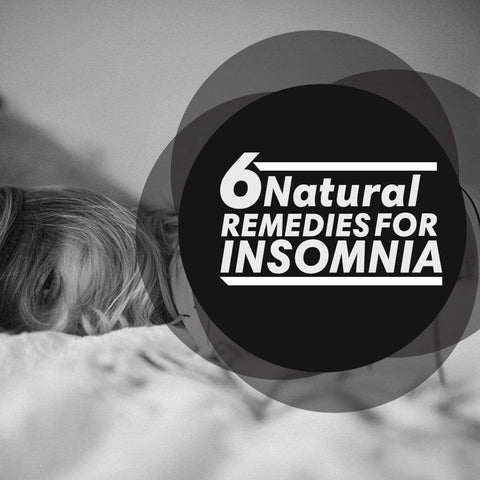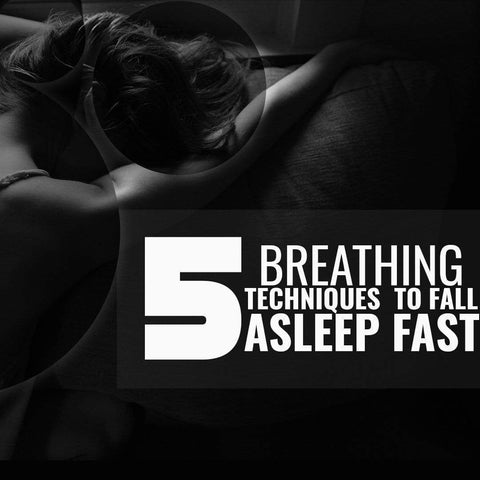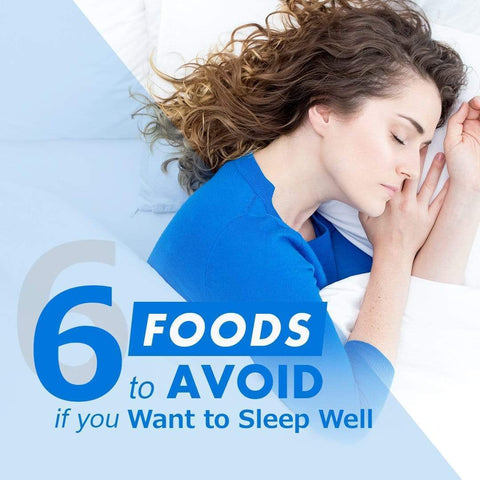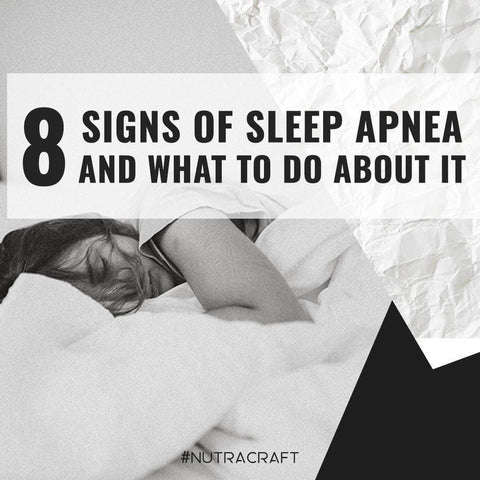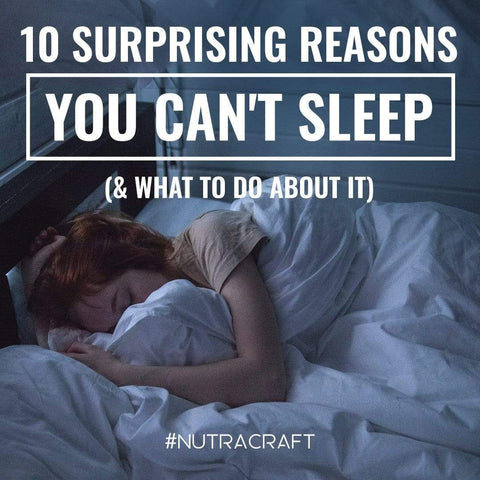
What if something was stealing your sleep in the middle of the night without you knowing it?
That something could be sleep apnea.
Sleep apnea refers to a disorder in which you repeatedly stop breathing while sleeping. And every time you stop breathing, your sleep gets interrupted, making for low quality sleep. You may have no trouble getting to sleep, but your sleep could be disrupted more than a dozen times a night, even up to 30 times each hour.
One of the most worrying things about sleep apnea is that you might not even know you have it. Researchers say that up to 80-90% of sleep apnea cases are undiagnosed 8! And it’s thought that around 20% of the U.S. adult population has sleep apnea 8.
The fact that so many people don’t know that they have sleep apnea makes it important to know the signs so that you can address this disorder before it completely steals your health.
After all, sleep is crucial for good health. So we want to banish anything that takes our rest away from us.
Signs of Sleep Apnea
1. You Have Excessive Daytime Sleepiness

The most obvious sign of sleep apnea is feeling sleepy during your waking hours. If you're sleeping well and without too many interruptions, you'll be awake when you should be alert during the day and sleepy around bedtime.
There's nothing wrong with occasionally feeling like taking a nap, but if you continually feel tired, even after a full night's sleep, your sleep quality is probably suffering.
2. Your Spouse Or Partner Notices Your Interrupted Breathing
Who better to know whether you're not breathing than the person who sleeps next to you? If they’re awake just for a few moments when you’re asleep, they might notice that you’re not breathing.
They also might notice if you gasp for air or make choking sounds.
3. You Wake Up With Headaches
This is another common sign that you’re not breathing enough when you’re asleep.
If you often wake up with headaches, it’s likely because you’re not getting enough oxygen to your brain. And when you don’t get enough oxygen, it’s thought that the blood vessels in your head widen in an effort to compensate and deliver more blood. This widening of the blood vessels can cause pain.
Research shows that apnea sufferers who have lower oxygen saturations in their blood tend to get more headaches 1. Lower oxygen levels are signs that a person’s apnea has become severe.
Exclusive Bonus! Download the FREE report ‘3 Key Steps to a Deep Restful Sleep’ by clicking here.
4. You Are Obese

If you’re fat, you have a much higher chance of developing sleep apnea. In the obese population, the rate of sleep apnea is 15% higher compared to the general adult population.
Why is this the case? The changes that obesity causes in the body are all associated with sleep apnea 2. “High BP [blood pressure], insulin resistance, systemic inflammation, [and] visceral fat deposition” all lead to less sleep 2.
Also, too much fatty tissue can build up in your throat and neck and actually narrow your airways 3. No wonder you would have trouble breathing at night.
5. You’re Often in a Bad Mood
Depression and psychiatric disorders are deeply correlated with sleep apnea. When you're not getting enough sleep, your brain is not going to regenerate itself and produce the feel-good neurotransmitters you need to feel level headed and happy.
Researchers note that when you don’t have good quality sleep, damage to your brain cells and increased inflammation occur 4. Both of these things can contribute to poor mood. And if you’re not getting enough sleep on a nightly basis, no wonder you’re not happy.
6. You Get Colds or the Flu Often
Quality sleep is important to maintain a healthy immune system 5. So it’s not great to be waking up 20 times an hour!
There is some evidence that people with sleep apnea may have lower levels of certain immune cells like “natural killer” cells that destroy viruses and bacteria 6. If you don’t have a large army of immune cells, you’ll be less likely to fight off infections, and you’ll catch viruses right and left.
7. You Have Type II Diabetes
If you have type II diabetes, there is a good chance that you have sleep apnea. Researchers say that “up to 83% of patients with type 2 diabetes” suffer from sleep apnea 7!
Sleep apnea can raise your blood sugar, and diabetes can lead to the development of sleep apnea. So it’s a two way street. Diabetes often leads to the obesity and inflammation that can contribute to apnea, and apnea might promote higher blood sugar levels. Research shows that the higher your blood sugar is, the worse your sleep apnea 7.
8. You Snore

Snoring is a classic sign of sleep apnea. If the person who sleeps next to you complains of your snoring, you might have apnea. Both snoring and apnea can arise from airways being narrowed, so they sometimes occur together.
Do you struggle with achieving deep, restful sleep?
Having a good night’s rest is the key to living a life full of energy and passion. But the modern lifestyle has become a huge detriment to sleep quality.
Without a full night’s rest, there’s a good chance you are missing out on living your best life.
Fortunately, there are key lifestyle choices you can implement right away so you don’t have to wake tired and groggy.
Discover these groundbreaking sleep hacks to drastically improve your sleep quality and wake up actually feeling refreshed and ready to conquer the day.
Click here to download the FREE report and find out how you can improve your sleep quality.




